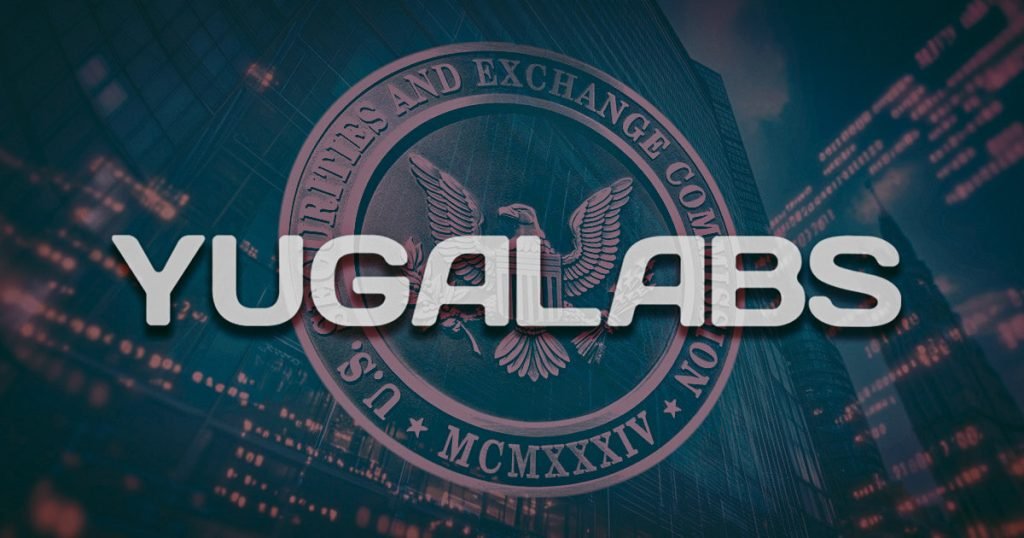Yuga Labs Investigation Closure: A Positive Outcome for the NFT Ecosystem
The US Securities and Exchange Commission (SEC) has officially closed its investigation into Yuga Labs, the innovative company behind some of the most recognized NFT collections, including the Bored Ape Yacht Club (BAYC) and CyberPunks. Announced on March 3, Yuga Labs heralded the conclusion as a significant victory for creators and the broader NFT community. In their statement, they emphasized that after more than three years of scrutiny, the SEC has chosen not to pursue any further enforcement actions or issue charges, reinforcing the stance that “NFTs are not securities.” This closure marks a pivotal moment for the NFT industry, which has faced an evolving regulatory landscape.
The SEC initially launched its investigation into Yuga Labs in October 2022, focusing on whether certain NFTs should be classified as securities under federal law. Specifically, the SEC was examining Yuga Labs’ major NFT collections, including the highly popular Bored Ape Yacht Club, to determine if the marketing and sale of these digital assets could be viewed as investment contracts, as defined by the Howey Test. Additionally, the agency scrutinized the sale of ApeCoin (APE), a cryptocurrency linked to the BAYC ecosystem, to evaluate whether it fell under the same securities regulations.
Yuga Labs’ investigation closure is not only a personal win for the company but also symbolizes a larger regulatory victory for the burgeoning NFT sector. With the SEC’s decision to halt the inquiry without charges, stakeholders in the NFT space are granted more clarity regarding the legal standing of their creations and marketplaces. While this represents positive progress, the overarching concerns regarding the classification of digital assets remain largely unresolved. The ruling essentially alleviates immediate regulatory fears, allowing creators to focus on innovation and growth.
This closure of the Yuga Labs investigation comes on the heels of other significant SEC decisions, indicating a potential shift in the regulatory approach towards the cryptocurrency sector. Under new leadership appointed during the Trump administration, the SEC has discreetly closed multiple investigations into crypto entities, including major players like Robinhood, Gemini, Uniswap Labs, Consensys, and OpenSea. Moreover, the agency has settled lawsuits with prominent exchanges such as Coinbase and Kraken, while simultaneously negotiating a resolution with Justin Sun, the founder of TRON. This phase of deregulation could pave the way for a more understanding relationship between regulatory bodies and crypto innovators.
Historically, the SEC has ramped up enforcement actions against digital asset companies under Chair Gary Gensler, aiming to assert regulatory oversight over what the agency claims to be securities. Many in the crypto industry have opposed these assertions, emphasizing that NFTs represent unique digital ownership rather than traditional investment contracts. This ongoing debate about the intrinsic nature of various digital assets creates an intricate environment where clarity is urgently needed for market players to operate confidently.
Despite this progress in the investigation landscape, it is crucial to note that the SEC’s long-standing legal battle against Ripple is still proceeding in courts. This active case is indicative of the complexity and challenges that persist in defining the regulatory environment for digital assets. The implications of the Yuga Labs case closure may influence how similar cases are approached going forward, but vigilance remains paramount for industry stakeholders as they navigate this dynamic and frequently evolving regulatory terrain.
In summary, the closure of the SEC investigation into Yuga Labs is a significant development for the NFT and crypto sectors. It not only offers a fresh perspective on the treatment of digital assets but also underscores a potential shift in regulatory attitudes. As the industry continues to grow and evolve, it remains critical for creators, investors, and platforms to stay informed and proactive in addressing their regulatory needs while fostering innovation and expanding the NFT ecosystem’s horizons.


